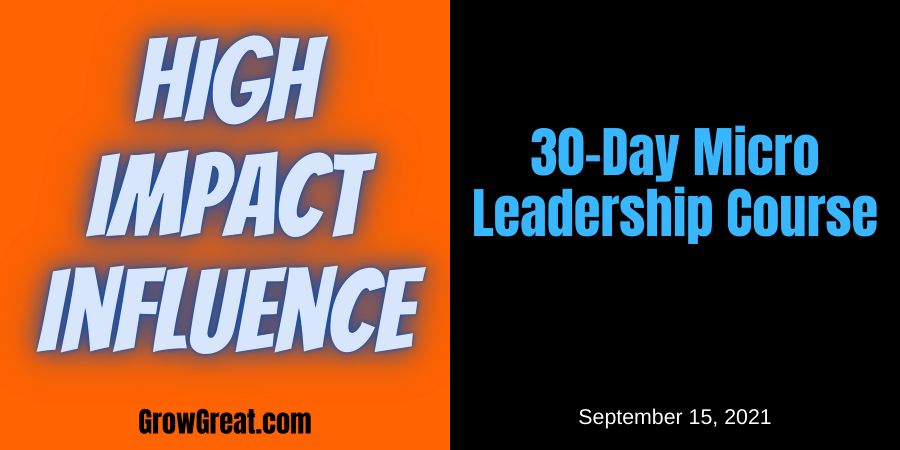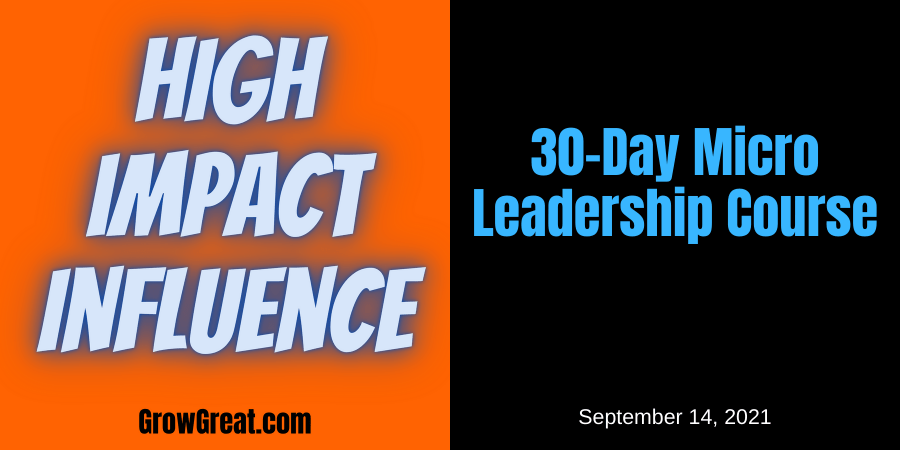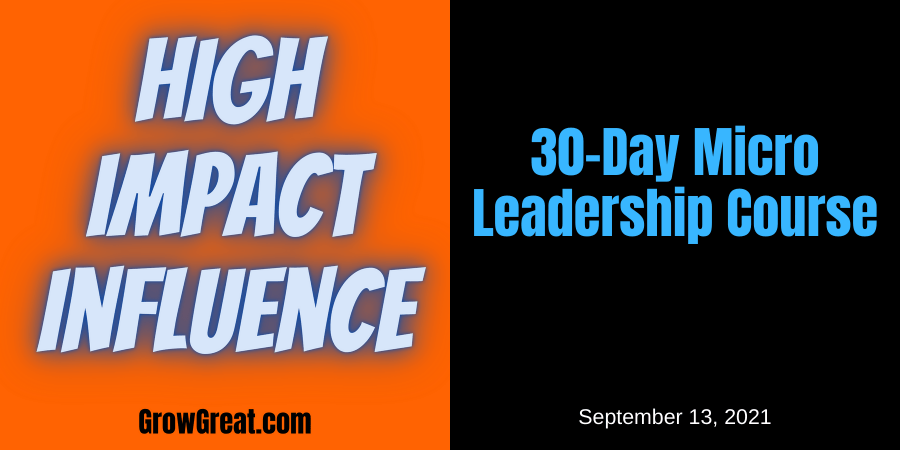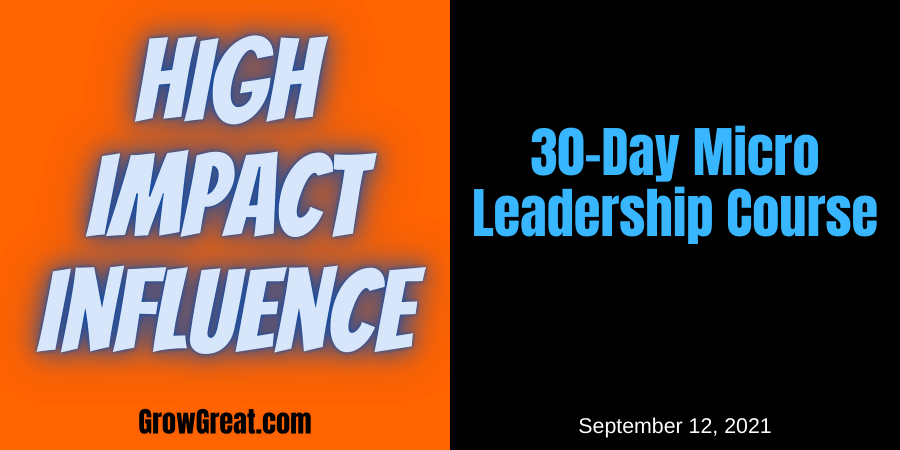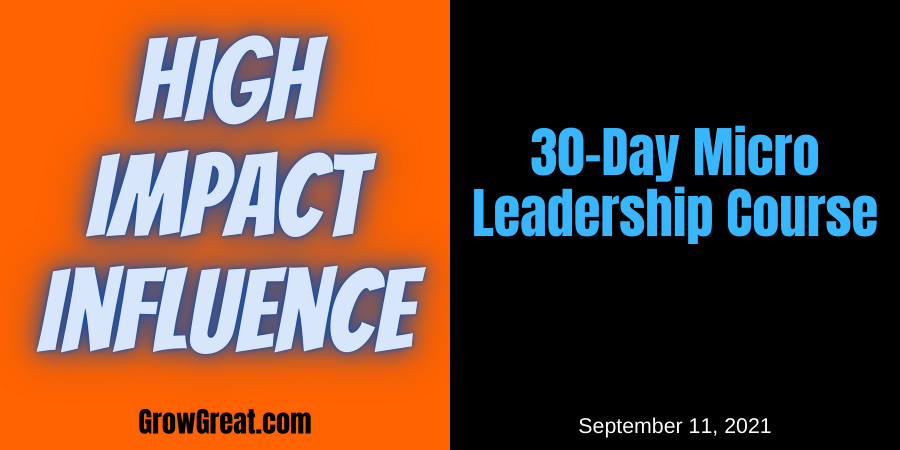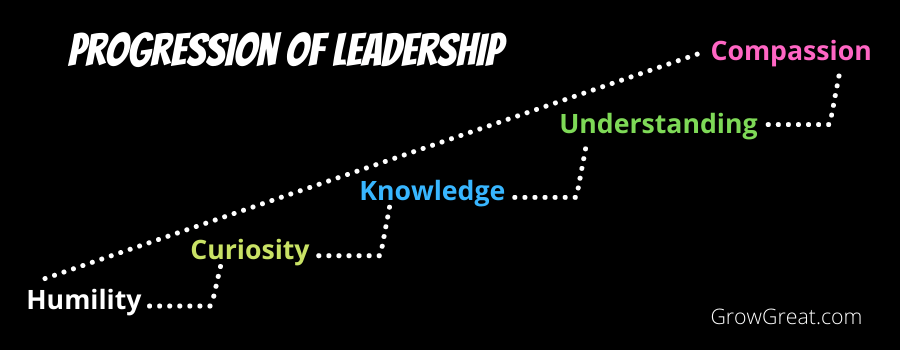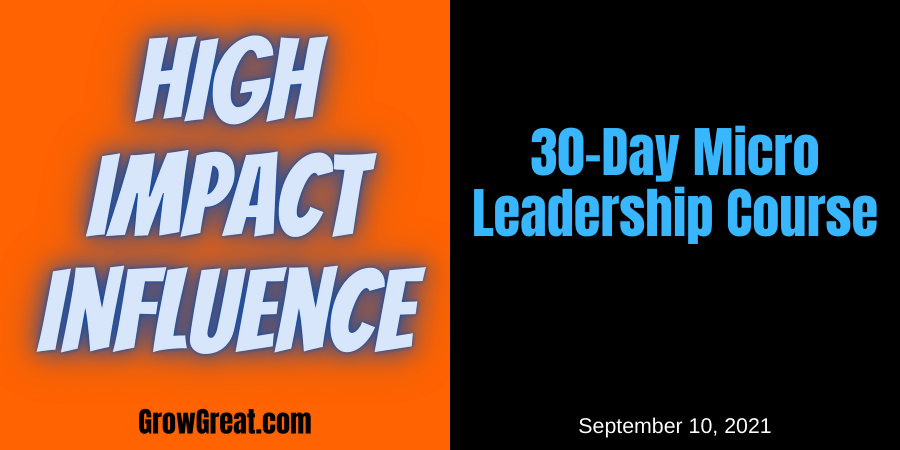30-Day Micro Leadership Course (September 15th 2021)
Podcast: Play in new window | Download (Duration: 6:42 — 6.1MB)
Subscribe: Apple Podcasts | Spotify | RSS | More
Here we are at the halfway point in our 30 Day Micro Leadership Course. Day 15, September 15, 2021.
Writing Your Story
View your life like a book comprised of many chapters. Your name is on the cover. You alone are writing the story. There may be many characters who are part of your story, but they’re not writing it with you. You’re in control of the writing because you alone are taking full responsibility for your life, remember? No more excuses!
Your humanity is going to come through in the book you’re writing. Some chapters of your life aren’t going to be ideal. Bad things are going to happen to you. Sometimes they might even be your own fault. But even if they aren’t, you’re going to own it all. There’s no downside to you when you do. It’s the path forward.
You can write great chapters to your life. Chapter after chapter. Even when bad things happen, you can still write a great chapter of determination to get through the tough or bad times. Here in a few days, I’ll tell you more about the hero journey – the journey you’re going to write about. That’s in stark contrast to the victim journey many are writing. Maybe you’ve written your story as a victim’s journey in the past, but that was then. This is NOW.
Your story will be congruent with the pursuit of your ideal outcome. That’s why it’s urgent that you get clear on your ideal outcome. Again, don’t worry about it being unchangeable. Just make sure it’s what you most want to happen today! As you continue to write your story you’ll adjust for things that happen. Twists and turns will be a big part of your story. That’s how life goes. Your response to those twists and turns is what will characterize your story. And you’re in charge of those reactions.
Based on my work I must insert here that your story is a complete story. It’s not singularly based solely on who you are at work. Are you a wife? A husband? A father? A mother? A son? A daughter? Are you a grandparent? How do you spend your free time? What things do you love? What do you hate? What are you saving your money for? There are a variety of things that determine your context. I’m not saying that your boss or your teammates know all these things…or that they should. I am saying all these things – and more – are part of your story though.
I’m a husband, father, and grandfather. These are just 3 roles in my story, but they’re very important. And some of the parts of my story are horrible because I’ve suffered some tremendous sorrows. Some far beyond my control, but all of my reactions to them — fully in my control. My suffering is part of my story. Each time I have to carefully write and craft the story of my reaction to the suffering. So must you.
I want to make sure you really understand the task. This isn’t about some fantasy or work of fiction. It’s you crafting your life – writing your story. Think of it as a completely accurate autobiography. Every detail is chronicled. Nothing is left out.
Writers pre-think what they’re writing about. You should, too. Don’t just let life happen without thinking about what you most want to happen. And how you most want the story to go.
Since we’re focused on leadership then we have to focus a bit more on that. Your leadership.
What kind of a leader are you – and how is that going to differ from the leader you most want to become? How can you begin to write a better story, one more congruent with how you’d like to be. Only fools think it can just happen. Heros know they have to make intentional decisions to bring out the best story possible. Act like a hero.
Begin with your own dissatisfaction. What parts of your story do you acknowledge as true, but you don’t like them?
It’s the quickest place to begin to write a better story. As you do, keep looking at the mirror to improve your accurate comprehension of who you really are. You can’t ignore reality and think you’ll write a work of fiction that you – and others – will see as true. This isn’t the work of a hypocrite. It’s not a work of fantasy. Or deception. Or self-delusion. It’s 100% true. So make it how you most want it to be because you’ll know if you’re lying. You are the writer and you’re also the first and most important reader of your story. Make yourself proud.
Be well. Do good. Grow great!

30-Day Micro Leadership Course (September 15th 2021) Read More »
